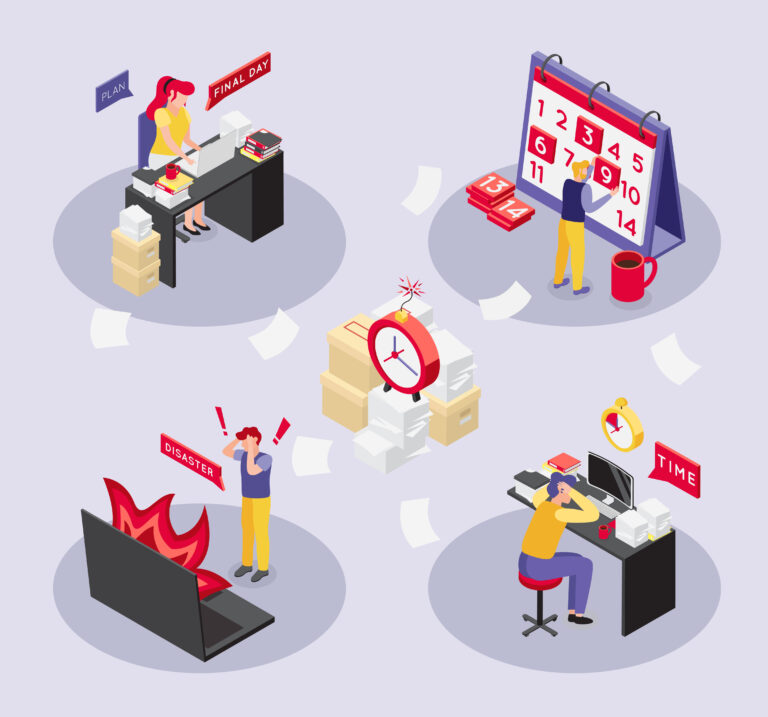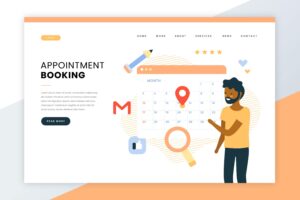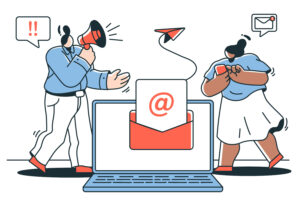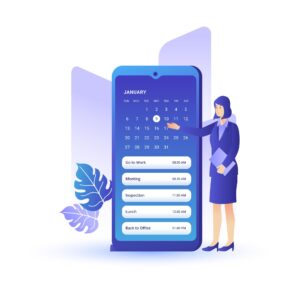Many business owners dread when double booking appointments happen. It’s especially common in beauty salons and in the healthcare industry. And most of the time double bookings are something you should avoid altogether. But are there circumstances when double booking appointments is good and can benefit your business?
We’ve dived deeper into double booking in scheduling, why it happens, how it can benefit your business if used carefully, how to avoid scheduling multiple appointments at the same time, and how to apologize for double booking when it happens. The goal is to equip you with the knowledge and resources to take complete control of double bookings and let them work to your advantage.
What Is Double Booking?
Double booking is when you schedule multiple appointments at the same time by accident. The problem with double booking in scheduling is that it creates dissatisfied and angry customers who have to wait even though they’ve scheduled the appointment in advance. Employees also suffer, because they have to work longer hours and are under pressure to compensate for scheduling mistakes.
When double booking appointments happen, everyone feels dissatisfied and this leaves a bad impression on customers in your business. However, there are some instances where double-booking can benefit your business and we’ll get right to explaining it.
Can Double Booking Benefit Your Business?
All service-based businesses based on scheduling appointments have one main problem in common. The problem we’re talking about is good ol’ no-show appointments. For one reason or another, customers decide or forget to show up for an appointment, and when that happens, your business loses revenue and you end up with a messy schedule.
By calculating your no-show rate, you can take advantage of overbooking. Let us show you an example:
Beauty salons have an average no-show rate of 10-20%. Let’s say it’s 10% for the sake of this example. If they have 100 customers per month, and 10 will be no-shows, they can spread out double-booked appointments throughout the month.
By utilizing this technique, you can lower the negative impact no-show appointments have on your business. When you intentionally double-book appointments, it’s called overbooking.
Double Booking vs Overbooking: What’s the difference?
As we’ve said, the main difference between double booking and overbooking is intent. Double booking happens accidentally and it’s often an honest human mistake. Overbooking is intentionally scheduling more appointments for the same time slot.
Double booking appointments happen when businesses have a hard time managing schedules, employees, customers, and multiple business locations. It can lead to inconvenience for everyone who is involved, from customers and employees to managers who messed up the schedules in the first place.
Overbooking is a strategy that maximizes the profitability and efficiency of your business. But you should still utilize it carefully to avoid similar consequences to double booking. When you put profit first, and customers second, you’ll provide a worse customer experience and end up losing money.
To strategically implement overbooking in your business, we’ve prepared some tips to help you minimize the consequences:
- Analyze historical data as far as your business goes in terms of no-show rates.
- Try to find patterns; for example, most no-shows are early in the morning.
- Use a robust and comprehensive booking system to avoid oversights, monitor occupancy levels and set an optimal overbooking level.
- Based on your analysis, the optimal overbooking level is slightly lower than your no-show rate.
- Start with overbooking carefully and monitor the results to adjust it accordingly.
How to Avoid Double Booking?
When you don’t intentionally utilize double-booking as a technique to maximize your profitability, it can harm your business, have a bad influence on customer experience, and mess up employee schedules. Let’s learn 7 ways you can implement right away to avoid double booking appointments.
1. Establish protocols
If you want to avoid double booking, you have to develop guidelines and protocols for scheduling appointments in your business. This means that both customers and employees know how scheduling appointments works. Having centralized booking software in place is a great way to track and manage all appointments, and it prevents double booking from happening. It’s important that your staff knows everything about scheduling, while customers can easily see available time slots and book an appointment.
2. Train employees

Image by pressfoto on Freepik
It’s not enough for you to know how the booking process works. Everyone who works with customers should know their way around scheduling to avoid double bookings. Take the time to educate and train your employees on how the whole booking process works and make sure you answer any questions they have about it. This will streamline the whole process for both customers and employees, making their lives easier and leaving double booking in the past.
3. Use buffer time before/after appointments
Buffer time before or after appointments is a great way to minimize the impact of double booking appointments when it happens. This leaves enough time for employees to unwind before the next appointment, but also to tie loose ends when double booking happens. You don’t have to use buffer time after every appointment, and how long it lasts depends on your business and your individual circumstances. By implementing buffer time, you’ll reduce the risk of appointments running over their allocated time and causing conflicts.
4. Send automated reminders to both customers and employees
It’s not enough to remind your customers about their appointments. Your employees should also get automated reminders about appointments scheduled with them to avoid double bookings and other scheduling conflicts. You can send automated reminders to customers and employees’ preferred way of communication, whether it’s email, SMS, Whatsapp, or some other channel.
5. Use booking confirmations
Besides reducing no-show appointments, booking confirmations are also a great way to avoid double booking. By asking your employees to approve and confirm every scheduled appointment, you drastically reduce the chances of double booking. Employees will have to check their calendars and notice if something is off, adding an extra layer of verification to the whole booking process.
6. Keep track of your bookings regularly
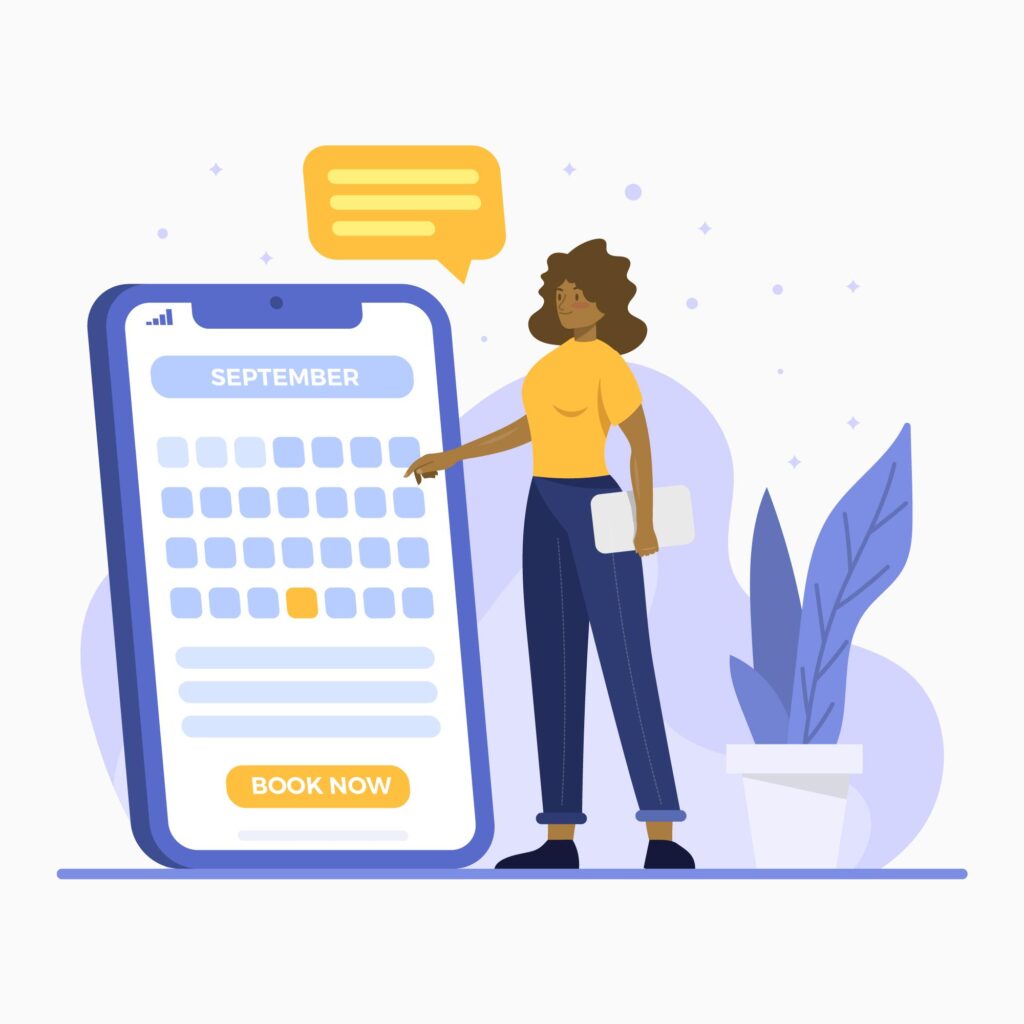
Image by Freepik
Take the time to review all of the bookings in your business from time to time. By keeping track of your appointments weekly and/or daily, you’ll get a better grasp of schedules and avoid double bookings completely. You’ll get ahead of any issues that occur and identify discrepancies in schedules.
7. Sync multiple calendars
You, your employees, and your customers usually don’t use only one calendar for everything. Keeping your personal life separated from work is essential, but you also don’t want to accidentally overlap appointments. Syncing every calendar with one another is a great way to avoid double bookings and maintain a healthy work-life balance as a bonus.
How to Apologize for Double Booking
When double booking happens, don’t worry! There are some actions you can still take to save the day.
The most important thing is to react as soon as you discover double booking appointments. You can try to find a suitable solution for everyone by consulting involved customers and employees. It’s important to take responsibility and express your honest regret for the situation. Most people will understand that that is an honest mistake. However, you should avoid sounding robotic and without empathy, but personalize the apology.
You can also briefly explain the situation and circumstances that led to it and clearly explain that you’re 100% aware of the impact it has on customers’ and employees’ schedules. The next thing you should do is propose a solution that’s going to work for both customers and employees. If possible, you could try to make it up for yourself.
You can also go a step further and offer upgraded services, discounts, or something extra for customers. This is especially important if you need to reschedule their appointment. It’s also a good idea to follow up after the initial apology and show your commitment to providing an exceptional customer experience.
Take Control of Double Bookings With Trafft
If you’re ready to take full control of double booking in your business, Trafft is here to help. With its user-friendly interface and comprehensive booking system, Trafft will help you leave unintentional double bookings in the past. By being able to sync all calendars, see all of your appointments in one glance, and set up automated reminders to customers and employees, you’ll manage your whole business seamlessly.
In Trafft, you can set up a booking confirmation process so you and your employees are always on top of things, but you can also use buffer time to minimize the negative effect of double bookings. It’s a centralized booking system that both your employees and customers will love, elevating the customer experience and employee satisfaction in your business.
Effective, yet simple to use, Trafft will keep track of all appointments for you, while you focus on other vital tasks in your business. Sign up for free & forget about double booking appointments!
